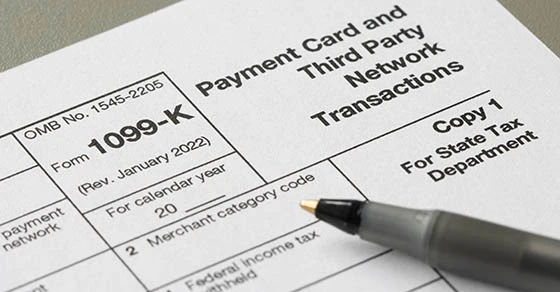Steer Clear of Tax Trouble: Key Errors That Could Lead to Compliance Issues and Penalties
Accurate sales tax returns and timely 1099 filings are important for businesses of all sizes. However, navigating these complex tax issues can be challenging. Here’s a breakdown of common mistakes to avoid in both places.
Sales tax reporting errors:
- Misunderstanding Nexus: Not all businesses are subject to sales tax. Misunderstanding nexus (physical presence or economic activity in a state) can result in inadvertent collection of sales tax or evasion of taxes due in some states
- Indirect Taxation: Sales tax rates vary from place to place and may change over time. The use of obsolete or incorrect tax returns may result in underpayment or overpayment of sales tax.
- Exempt Sales Error Classification: Goods or services may be exempt from sales tax. Misclassification of exempt sales as taxable may result in excessive tax collection and may be unsatisfactory to customers.
- Inaccurate Recordkeeping: Careful record keeping of sales, applicable tax rates, and sales exclusions is essential to accurate sales tax reporting and auditability. Missing or inadequate records can make it difficult to reconstruct sales data and increase the margin for error.
- Late or Missing Taxes: Sales tax returns must be filed on time. Missing a deadline or filing late can result in penalties and interest.
1099 filing errors:
- Employees are Wrongly Classified: Incorrectly classifying independent contractors as employees can cause problems with payroll taxes and employee classification reporting to the IRS.
- Incomplete or Inaccurate Forms: Forms 1099 contain precise information about the recipient, such as their Taxpayer Identification Number (TIN) and gross income for services rendered. Incorrect or missing information may result in costs and delays in processing.
- Using the Wrong Form: Forms 1099 are used to report various incomes. Use of the wrong form in processing any payment may result in delays in processing and investigation by the IRS.
- Missed Deadline: The deadline to file with the IRS and provide a copy of the receipts is usually January 31 of the following year Late filing can result in hefty penalties grade.
- Not to File Electronically: The IRS strongly encourages filing 1099 forms electronically. Filing documents can be subject to processing delays and highly obvious errors.
To reduce tax errors:
- Consult a Tax Professional: Sales tax laws and 1099 filing requirements can be complicated. Consider consulting with a qualified tax advisor to ensure you comply and avoid costly mistakes.
- Invest in Accounting Software: Accounting software can automate multiple sales tax calculations and simplify 1099 Form preparation, reducing errors and saving time.
- Stay Updated: Sales tax rules and 1099 filing requirements may change over time. Stay updated by registering with your state tax office and the IRS.
- Create a Plan: Establish a clear process for collecting sales tax, tracking open sales, and keeping accurate records. Similarly, implement a system to ensure timely and accurate 1099 filings.
By understanding these common mistakes and implementing preventive measures, you can reduce the risk of errors on your tax return and 1099 filing. Remember that accuracy and timeliness are essential to maintain good standing with the tax authorities and avoid hefty penalties.
Our resource directory offers valuable links to assist in sales tax and 1099 filing for a business or individual.








